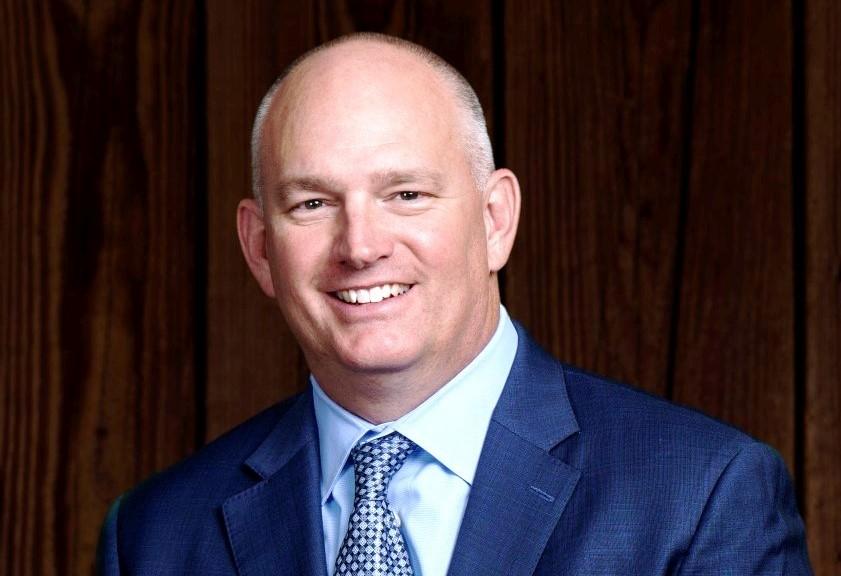Sounding Board: Five Minutes With Brian Proctor, Mente Group Founder, President and CEO

Brian Proctor is head of the Dallas-based Mente Group, a global aircraft brokerage and consulting firm active in midsize and larger business jets. He has served private aviation clients for more than 20 years and serves on a number of industry boards, including the National Aircraft Resale Association.
In 2019, Mente Group recorded its highest pre-owned aircraft transactions in terms of dollar values in the past decade. This year, you had a slower January and February but expected a “huge March.” Then the pandemic hit. What is happening in the pre-owned market now?
About the time the pandemic began to manifest itself, we saw a huge drop-off in terms of buyer activity. Since then, we’ve spent countless hours on the phone with clients. Most of our clients are in the assessment phase. I don’t think the companies are yet to the point of pulling the trigger and wanting to sell their planes, because they don’t know the results of what this pandemic will be or how quickly we’re going to come out of it.
How does this compare to the downturns of 2001 and the recession of 2008 and 2009?
When we looked at the 2001 period, the cycle time from the beginning of the downturn to the bottom of the downturn was 11 quarters…. (The downturn) started before 9/11. But it was a pretty long cycle. In 2008-2009, the cycle was much shorter. It was seven quarters peak to trough.
And this time?
We think with this cycle, it’s going to be a much shorter cycle than those two. I think this is going to be about five quarters. The one thing I keep trying to process is the impact of the health component of what we’re dealing with today. We’ve been in basically a six-week pause. There is an overarching theme of health and safety that’s going to drive what are going to be the implications of this that we don’t know yet.
Will this have any long-term effect, either positive or negative, on business aviation?
In talking with our clients, each one has said they are looking out for the ‘health corridor’ of their executives to travel through—from the time they leave their office or their home to go to the airport and go to their business meeting, or go where they’re going—and then on the way back. They want to create an environment for their executives where they are going to be healthy all the way through. There are going to be implications to travel as we see it. I think anybody who can afford the asset class is going to look at and potentially want to be a buyer for it. The pricing in some cases is staggering, but the reality is, if you have the means, this can protect you from a health standpoint. When we all start traveling again, point-to-point travel (on commercial airlines) is going to be a much more time-consuming process. The benefits of private aviation are going to be substantial.
Let’s talk about aircraft values. What is happening there?
We’re already seeing some movement in prices in the marketplace trending downward. We haven’t really seen any transactions yet in order to measure what the effect is going to be. But if you look back at 2001, the downturn resulted in about a net 20% loss in value over those 11 quarters. In 2007 to 2009, it was about a 25% reduction in values. But you have to remember, in the previous four years leading up to 2007, there was a massive runup in aircraft values. When you normalize that back out, it gives you about a 20% decrease in values.
Where do you predict values will go in this environment?
One would think we could have a 20% drop, but we’re not there yet. Anecdotally, the ones we’re seeing in the market, in aircraft that we know about, we’re seeing anywhere from 10 to 20% (decline) right now. But it depends on the size of the aircraft and it depends on (who owns the aircraft.) Some businesses are more in trouble than others, and so they’re having to move more quickly.
What is happening with aircraft financing? You noted that banks are in a better spot today than they were during the last recession.
We’re talking to most of the primary banks. A lot of work they’re doing is refinancing or someone has bought with cash and now they’re coming back in and doing cash outs—refinancing to provide liquidity back to the client. One of our lending partners had indicated that if someone was financeable five or six months ago, they’re still financeable today. However, as they do their due diligence, they’re applying another filter and that is the COVID-19 filter on how resilient those businesses will be with this pandemic and what does that look like on a go-forward basis. It’s going to be a little bit longer and drawn-out process. There’s a lot of things going on right now in banks, where people are trying to pull liquidity out. So, there’s a resource allocation issue I think most of the banks are trying to deal with and process all the demand and activity they’re seeing.
How do you forecast 2020 shaping up?
We’re excited about the remaining part of the year. It started last week—the phone started ringing for a change. People are interested in looking at airplanes we’re selling. Hopefully, that’s a good sign. Talking to others, they saw the same thing. We’re cautiously optimistic. But we’re also realistic. This could be pretty painful if there’s a second dip or if there’s another cycle that increases (the number of cases.) We’re watching very carefully. But if there’s anybody thinking about buying an airplane today, there’s probably not a better time to buy an airplane in the last 10 years than now.





